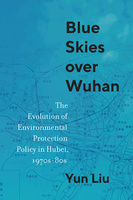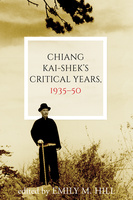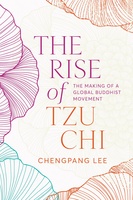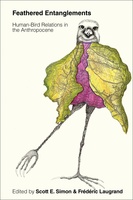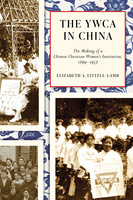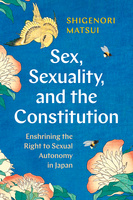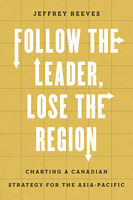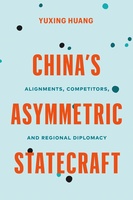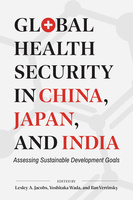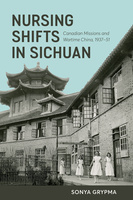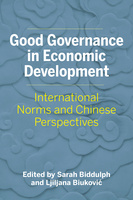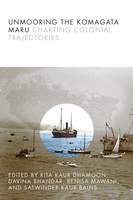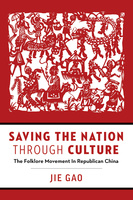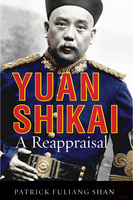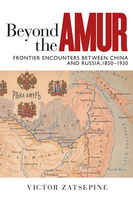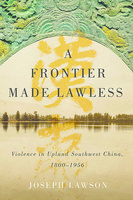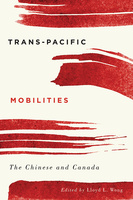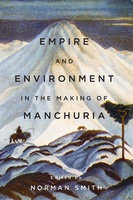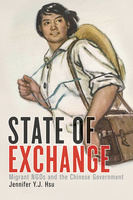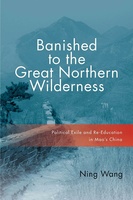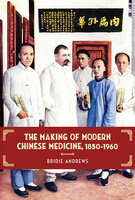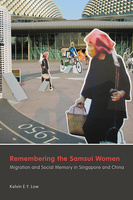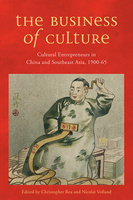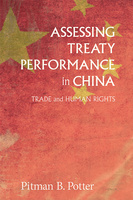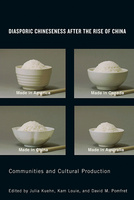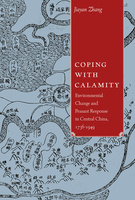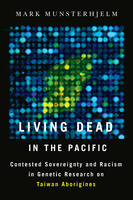Blue Skies over Wuhan
The Evolution of Environmental Protection Policy in Hubei, 1970s–80s
Blue Skies over Wuhan traces the development of environmental protection policy in China through a case study of Hubei Province, where an environmental agenda dominated by economic growth priorities gradually gave way to more mature, state-led governance.
Chiang Kai-shek's Critical Years, 1935–50
Chiang Kai-shek’s Critical Years analyzes an enigmatic figure at the peak of his influence, revealing an improvisational approach to political problems that brought remarkable successes alongside ultimate defeat.
The Rise of Tzu Chi
The Making of a Global Buddhist Movement
The Rise of Tzu Chi reveals a dynamic Asian religious movement that draws its global success from its capacity to incorporate diversity.
Feathered Entanglements
Human-Bird Relations in the Anthropocene
Feathered Entanglements investigates human-bird relations across the Indo-Pacific and shows what birds can teach us about how to live with other species in the Anthropocene.
Not Just a Man’s War
Chinese Women’s Memories of the War of Resistance against Japan, 1931–45
Not Just a Man’s War uncovers the extraordinary stories of ordinary Chinese women during the horrific fourteen-year War of Resistance against Japan, from 1931 to 1945.
The YWCA in China
The Making of a Chinese Christian Women's Institution, 1899–1957
The YWCA in China traces the history of this Christian organization – and the social philosophies of the Chinese women who led it – through the tumultuous first half of the twentieth century.
Sex, Sexuality, and the Constitution
Enshrining the Right to Sexual Autonomy in Japan
Sex, Sexuality, and the Constitution persuasively demonstrates the need to entrench protections for individual sexual autonomy within constitutional law.
Follow the Leader, Lose the Region
Charting a Canadian Strategy for the Asia-Pacific
Follow the Leader, Lose the Region conclusively demonstrates that an understanding of how Asia sees itself should inform Canadian foreign policy in the region.
China’s Asymmetric Statecraft
Alignments, Competitors, and Regional Diplomacy
China’s Asymmetric Statecraft uncovers the different narratives and paradigms that constitute Chinese foreign policy toward its weaker neighbours, alerting us to a dramatically changing international environment.
Global Health Security in China, Japan, and India
Assessing Sustainable Development Goals
Global Health Security in China, Japan, and India uses the targets set by the UN Sustainable Development Goals to conduct an impressively thorough assessment of coordinated health care in three major Asian countries.
Frontier Fieldwork
Building a Nation in China’s Borderlands, 1919–45
Frontier Fieldwork exposes the transformative power that early-twentieth-century fieldwork had in placing the Sino-Tibetan borderlands at the centre of China’s nation-making process and race to modernity.
Nursing Shifts in Sichuan
Canadian Missions and Wartime China, 1937–1951
Nursing Shifts in Sichuan is a testament to the resilience of educated women, exploring modern nursing as one of the most consequential additions to health care in early-twentieth-century China.
Globalization, Poverty, and Income Inequality
Insights from Indonesia
Globalization, Poverty, and Income Inequality uses diverse empirical approaches to reveal the sometimes unexpected effects of trade and globalization on poverty and inequality.
Translating the Occupation
The Japanese Invasion of China, 1931–45
Featuring a collection of translated texts written by writers who lived through the occupation, Translating the Occupation challenges and deepens our understanding of the tensions and transformations that Japanese invasion wrought on Chinese society.
Exporting Virtue?
China’s International Human Rights Activism in the Age of Xi Jinping
Exporting Virtue? critically explores the ways in which China is attempting to change international human rights standards to accommodate its interests.
Good Governance in Economic Development
International Norms and Chinese Perspectives
Good Governance in Economic Development examines what happens at the intersection of international and Chinese conceptions of transparency, accountability, and public participation.
Unmooring the Komagata Maru
Charting Colonial Trajectories
Unmooring the Komagata Maru challenges conventional historical accounts to consider the national and transnational colonial dimensions of the Komagata Maru incident.
A Human Rights Based Approach to Development in India
This book demonstrates why economic development is synonymous with institutional development for the furthering of human development issues.
Constructing Empire
The Japanese in Changchun, 1905–45
While other studies focus on the role of diplomats and the military, Constructing Empire demonstrates that building the Japanese empire also required civilian participation.
Saving the Nation through Culture
The Folklore Movement in Republican China
Saving the Nation through Culture tells the little-known story of how a group of Chinese scholars attempted to use “low culture” to promote national unity during a long period of crisis.
Yuan Shikai
A Reappraisal
This first major comprehensive study of Yuan Shikai in more than half a century explores the controversial life of one of the most important figures in China’s transition from empire to republic.
Beyond the Amur
Frontier Encounters between China and Russia, 1850–1930
Beyond the Amur charts the pivotal role that an overlooked frontier river region and its environment played in Qing China’s politics and Sino-Russian relations.
A Frontier Made Lawless
Violence in Upland Southwest China, 1800-1956
In the first Western language history of Liangshan, Joseph Lawson argues that the region was not inherently violent but made violent by turmoil elsewhere in China.
Trans-Pacific Mobilities
The Chinese and Canada
As China’s international influence grows, this timely collection reveals how the global movement of the country’s people, culture, information, and economy continues to shape Canadian cities and China itself.
Empire and Environment in the Making of Manchuria
This unique analysis of Manchuria’s environmental history provides an overview of the climatic and imperialist forces that have shaped an area of ongoing geopolitical importance.
State of Exchange
Migrant NGOs and the Chinese Government
This exploration of the interactive relationship between Chinese NGOs and the Chinese state provides fresh insights into how the Chinese government operates and why it needs non-governmental organizations to survive.
Banished to the Great Northern Wilderness
Political Exile and Re-education in Mao’s China
Through newly accessed labour farm archives and recently uncovered Chinese-language sources, this book brings to life the experience of political exiles in Mao’s China.
Not Fit to Stay
Public Health Panics and South Asian Exclusion
Not Fit to Stay reveals how officials used panic about public health concerns as a basis for excluding early twentieth-century South Asian immigrants from entering Canada and the United States.
The Stability Imperative
Human Rights and Law in China
Legal expert Sarah Biddulph uses case studies to examine the multiple and shifting ways in which the Chinese government’s efforts to maintain social and political stability impact on the legal definition and implementation of human rights in China.
The Making of Modern Chinese Medicine, 1850-1960
A history of the convergence of Western and Chinese medical practices in modern China.
The Pragmatic Dragon
China’s Grand Strategy and Boundary Settlements
Presenting a historical survey of China’s boundary disputes and settlements, Hyer demonstrates that its approach to territorial disputes has been pragmatic and strategic.
Remembering the Samsui Women
Migration and Social Memory in Singapore and China
A study of the Samsui women who migrated from China to Singapore, where they have been commemorated as nation-builders.
The Business of Culture
Cultural Entrepreneurs in China and Southeast Asia, 1900-65
The first critical analysis of Chinese “cultural entrepreneurs,” businesspeople whose entrepreneurial endeavours in China and Southeast Asia the late nineteenth and early twentieth centuries transformed the cultural sphere.
Staging Corruption
Chinese Television and Politics
A study of the television dramas about government corruption that became hugely popular in the mid-1990s and their reflection of China’s post-Socialist anxieties.
Assessing Treaty Performance in China
Trade and Human Rights
This volume examines the normative and operational dimensions of China’s legal performance related to international standards on trade and human rights.
Diasporic Chineseness after the Rise of China
Communities and Cultural Production
Leading international scholars examine the production of culture during China’s rise to global superpower in the last quarter of a century.
Cultivating Connections
The Making of Chinese Prairie Canada
The voices of Chinese immigrants who settled in the pre-1950s Canadian prairies come alive in this extraordinary record of migration, settlement, and community life.
Coping with Calamity
Environmental Change and Peasant Response in Central China, 1736-1949
The first environmental and socioeconomic history of the Jianghan plain in central China, focusing on the peasants’ relationship with a volatile environment.
The Voyage of the Komagata Maru
The Sikh Challenge to Canada's Colour Bar, Expanded and Fully Revised Edition
A sweeping revision and reconsideration of the Komagata Maru incident as a defining moment in Canadian, British Empire, and Indian history.
Living Dead in the Pacific
Contested Sovereignty and Racism in Genetic Research on Taiwan Aborigines
A consideration of the impact of racism and questions of sovereignty on genetic research, which details the exploitative history of research on Taiwanese Aborigines.

